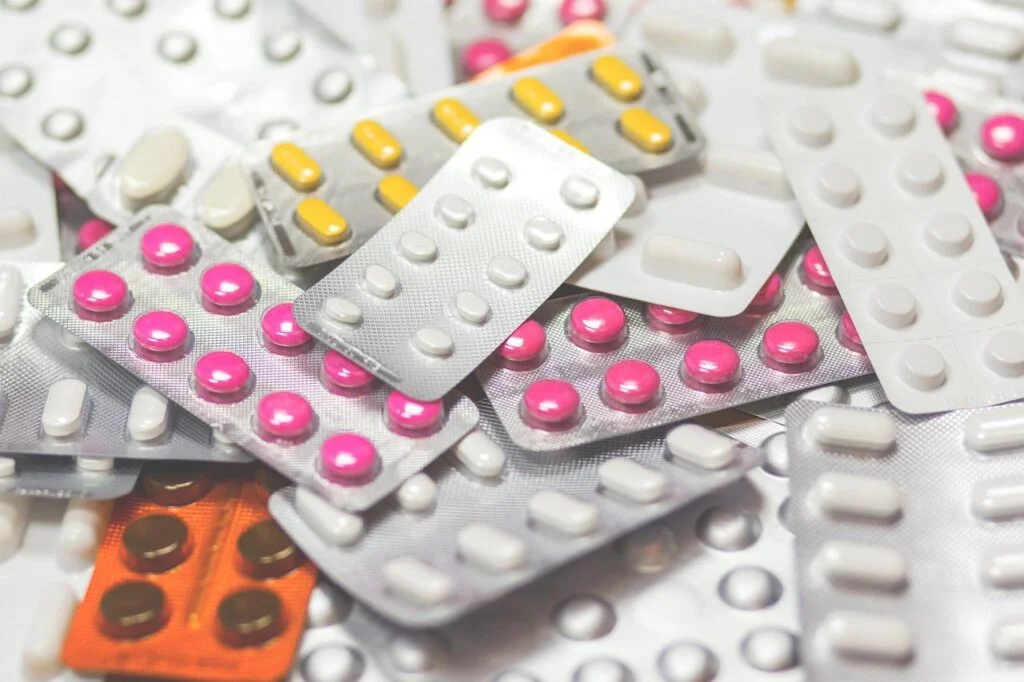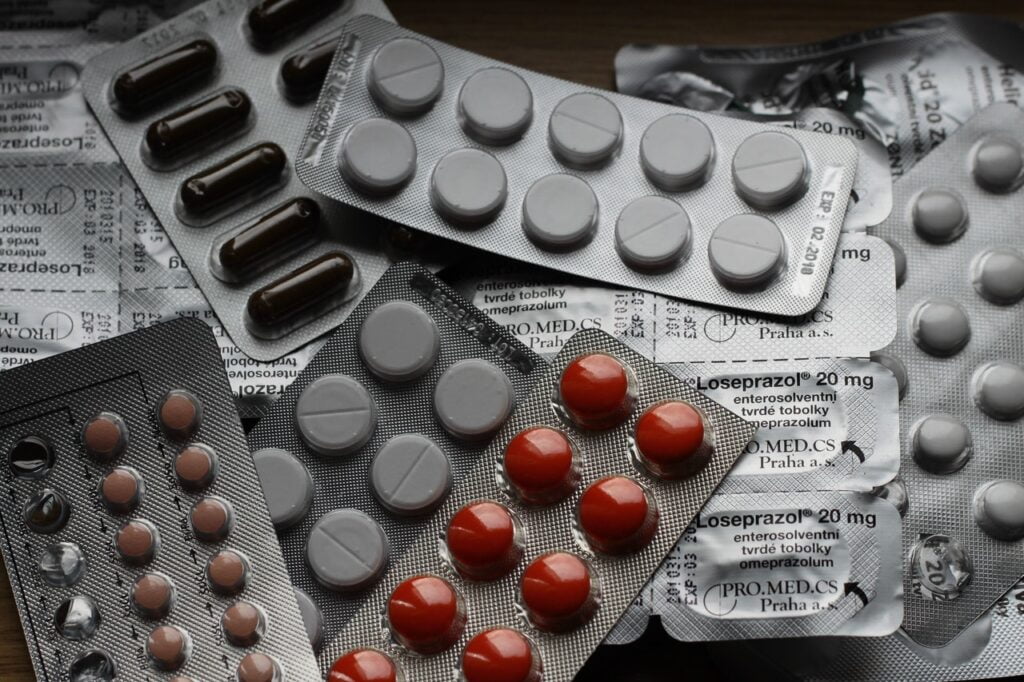- Home
- Addiction Treatment
- Dual Diagnosis
- Addiction And ADHD
Addiction And ADHD
There are about 1.5million people in the UK who have ADHD.
What you might not realise is that many of those people have issues linked to drug and alcohol use.
The two conditions often come hand–in-hand.
Why is that, and what treatment options are there for the person with ADHD who suffers from addiction?
What Is ADHD?

According to the NHS, ADHD, or attention deficit hyperactivity disorder, is a condition that affects people’s behaviours.
If you or someone you love has ADHD, you’ll be familiar with typical ways it impacts behaviours and how this ripples out to have an influence over every aspect of a person’s life.
Typical traits of ADHD are:
- Lack of focus/unable to concentrate for long periods of time
- Overactive
- Impulsive
- Struggling to complete tasks
- Unable to control speech/actions
- Risk-taking behaviours
Many people with ADHD are exceedingly intelligent but, in systems that aren’t particularly accommodating to alternative ways of learning and working, they can be labelled otherwise.
This can, of course, go on to have a powerful negative impact on the person in relation to their confidence and self-esteem.

A person who has ADHD and their loved ones will feel how the condition impacts their relationships, as well as their educational and work lives.
If you have someone in your life with ADHD, it’s important to learn about the condition and to learn how to accommodate neural-diverse ways of thinking and doing things.
Being able to negotiate through different ways of thinking not only improves relationship dynamics, it demonstrates respect for each person and can introduce refreshing and exciting energy into life.
Risk Factors For People With ADHD And Substance Misuse

Research demonstrates very clearly that there is a link between ADHD and addiction.
The risk of developing a substance use disorder is literally twice as likely for people who have ADHD.
This is especially the case in teenage years where it’s been shown that adolescents with ADHD turn to substances to help them sleep and to help regulate their moods.
Interestingly, the study just mentioned also finds a neurobiological connection between ADHD and substance misuse.

There are common deficits in various brain systems and the dopamine system that are similar between the two conditions.
Substances are also often used where people have low self-esteem and low satisfaction in life.
Where ADHD manifests, people can experience quite challenging times within the educational, working, and social situations.
Years of this can have a knock-on effect to self-confidence, and it is therefore safe to say that for some people with ADHD, especially where protective factors are lacking, substance misuse is a serious threat.
ADHD Medication And Addiction

In the UK, ADHD is most commonly treated by Ritalin and Elvanse.
While considering ADHD in the context of addiction risk, it’s imperative to consider these medications which are, of course, amphetamines.
Amphetamines are highly addictive medications with great potential for misuse.
They stimulate the central nervous system -for people with ADHD, they increase activity in brain regions that control attention and behaviour.
Side effects can include:
- Headaches
- Sleep disturbances
- Nervousness and anxiety
- Fluctuations in appetite
- Weight loss
- Dizziness
- Nausea and sickness
- Psychosis
It’s important that people who are prescribed ADHD amphetamine-based medications follow their GP’s guidance.
Not doing so and abusing them can lead to addiction and unwelcome and dangerous side effects.
ADHD, Mental Health And Addiction

ADHD and addiction are very much linked to mental health conditions.
Research reveals that 38% of people with ADHD also have a mood disorder, 47% have depression and up to 53% have anxiety.
These are incredibly high statistics.
Anxiety
When thinking about typical ADHD traits, such as disorganised thoughts, forgetfulness, fidgeting, racing thoughts, being unable to manage time effectively, irritability and mood swings, there is a close relation to how anxiety can present.
When a person has anxiety on top of ADHD this can result in excessive worry, being even less able to focus, becoming fatigued, on-edge, consumed in worry and fear, and experiencing insomnia.
Needless to say, this can be very hard to manage.
Self-Medicating

Any mental health condition when combined with ADHD can be extremely uncomfortable to experience.
All these symptoms can lead to a person using substances as a way of self-medicating.
Self-medicating is when a person with mental health symptoms uses drugs or alcohol to try and regulate their moods and feelings.
When people turn to substances often enough, they obviously increase their chances of developing an addiction.
Unfortunately, another issue that needs to be considered here is that substances go on to cause mental health symptoms.
Sadly, this can create a vicious cycle of drug or alcohol misuse.
Dual Diagnosis And Treatment

When more than one condition exists, such as ADHD and depression, or ADHD and alcoholism, or ADHD, anxiety and cannabis addiction, this would be labelled by professionals as a dual diagnosis.
Of course, all of these conditions are inextricably linked and exacerbate each other.
In terms of treatment, people with ADHD would be supported to recover around both their addiction and their mental health condition.
Being supported in these areas would also support the person to become more in-tune with themselves and in knowing when they’re responding from their true selves, due to the mental health issue, or in connection to the addiction.
How To Support Someone You Love Who Has ADHD And Addiction

If you love someone who has ADHD and an addiction, it can feel very frustrating and worrying.
Firstly, it’s really important to look after yourself.
It’s so easy to develop co-dependent patterns when someone you love abuses drugs and alcohol.
Support organisations can provide you with tips on how to create and maintain healthy boundaries and how to look after yourself.
When you make space for self-care and your own things, you have more energy to support your loved one.
Shared Activities

One of the most useful things you can do is to support them to take part in healthy activities with you.
This might include something arty, sporty or something of general interest to you both.
Doing so takes the focus of your relationship away from the negative and onto something positive.
It also supports your loved one to have a life outside of addiction.
Finally, as well as understanding more about the substance they’re addicted to, it’s a good idea to find out about treatment options.
When the time comes for a conversation about rehabilitation, you want to feel you can support them in a helpful way.
Rehabilitation Support For People Who Have ADHD And Who Have Addictions

If you have ADHD and are also living with an addiction, there is rehabilitation support out there for you.
The most effective will be that which is tailored to your needs.
You can access a personalised rehabilitation approach at a private clinic.
Private clinics offer inpatient programmes where you stay for a length of time and participate in a wide range of treatments and activities.
In the UK, private clinical care is the best you’ll find in order to treat addiction and begin a sober life.
Behavioural Therapies

Behavioural therapies, such as Cognitive Behavioural Therapy (CBT), are often used as they’re effective in helping people manage ADHD as well as learning how to manage triggers and cravings.
The aim is to support you to manage any harmful thoughts you may have and to build your self-confidence in your ability to heal.
For people who have experienced deeply traumatic events, Dialectical Behavioural Therapy might also be available.
This supports you to understand and adapt your emotional responses.
Therapies offer an excellent space for you to understand the cause of the addiction and rehab offers the optimum environment to develop healthy new habits.
Medications

For people with ADHD, it will be the aim to get to a point where their ADHD medications are managed effectively and are treating the condition.
If you’re dependent on a physically addictive substance such as alcohol or heroin, then you’ll likely have to go through a detox period on another prescription.
This is so that you can safely taper off the substance without any dangerous side effects.
Where people might have mental health symptoms, they might be offered medications to support this too, such as antidepressants or anti-anxiety drugs.
Holistic Activities And Group Approaches

As well as the above-mentioned approaches, you may also be supported to manage your ADHD, your addiction and any other mental health issues through the following holistic therapies and support groups:
- Art therapy
- Mindfulness
- Yoga
- Equine therapy
- 12 Step groups
- SMART recovery groups
Final Thoughts

It’s highly important to consider the risks of substance misuse for those who have ADHD.
Some research states that addiction is 3 times more likely.
This can be linked to personality traits as well as neurobiological structure of the brain.
Accessing support is essential if a person is to recover successfully from addiction while managing ADHD and any related mental health symptoms.
Rehab clinics offer personalised treatment plans to support you to achieve sobriety.
To find out all about your options, contact Rehab Recovery now.


